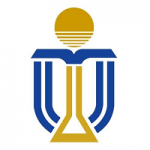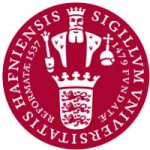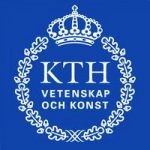项目介绍
The Doctor of Philosophy (PhD) Program caters for those wishing to pursue a career in advanced industrial research and development or university research and teaching. It emphasizes training in original thinking and independent research. A candidate for a PhD degree is expected to demonstrate mastery of knowledge in the chosen discipline and to synthesize and create new knowledge, making an original and substantial contribution to the discipline.
On successful completion of the PhD program, graduates will be able to:
- Demonstrate a comprehensive and deep understanding of scientific theory and methods relevant to Electronic and Computer Engineering (ECE);
- Demonstrate mastery of, and critical understanding of, relevant scientific literature;
- Critically apply theories, methodologies, and knowledge to address important fundamental questions relevant to ECE;
- Demonstrate the ability to independently conduct original research and make significant scientific contributions to the ECE discipline; and
- Demonstrate competency in oral and written communication skills at a level sufficient for disseminating the results to the scientific community.
The programs are offered by the Department of Electronic and Computer Engineering with the following research foci and state-of-the-art facilities, enabling students to carry out the pioneering research.
Research Foci
Solid-State Electronics and Photonics
Topics related to Microelectronics, Nanoelectronics, Large Area Electronics, Power and Energy-Efficient Electronic Devices, High-Speed Electronics, Semiconductor Materials, Devices and Fabrication Technology, Micro-Electro-Mechanical Systems (MEMS), Displays, Optoelectronics, Organic Light-Emitting Diodes (OLEDs), Solid-State Lighting, Liquid-Crystal Displays, Liquid-Crystal Photonics, Silicon Photonics, Optical Communications and Interconnects, Solar Cells, Epitaxy of Compound Semiconductors by MOCVD.
Integrated Circuits and Systems
Topics related to Digital, Analog and Mixed-Signal Integrated Circuits (IC) Design, VLSI Design, Embedded Systems, Network-on-Chip and Multiprocessor System-on-Chip, Circuit and System Simulation and Verification Tools. Advanced topics include RF and mm-Wave IC and Systems, Data Converters, Power Management IC, High-Speed Optical Communication Transceiver, Image and Bio-Medical Sensors, Signal Processing and System Architectures, Design Automation, Computer Architecture, Reconfigurable System and Hardware/ Software Codesign.
Wireless Communications and Networking
Topics related to Physical Layer, Signal Processing, Coding and Information Theory, Networking as well as New Architecture for Next Generation 5G Wireless Communications, Massive MIMO and Cloud Radio Access Networks, Interference Management, Heterogeneous Networks, Green Communications, Tactile Wireless Systems For Machine Type (MTC), Device-To-Device (D2D) and Multimedia Communications, Integration of Control and Wireless Communication Theory, Display-Smart Mobile Communications And Interactions, Network Coding Theory and Applications, Cross-Layer Stochastic Optimization, Distributed Algorithms and Optimisations, Big Data Systems, Social Media and Cyber-Physical and Social Computing Systems, Self-Organising Networks, Cloud Computing and Virtualisation.
Biomedical Engineering
Topics related to Medical Imaging, Biomedical Optics and Biophotonics, Neuroengineering, Medical Electronics, Bioinformatics/ Computational Biology and Biomedical Microdevices and BioMEMS.
Control and Robotic Systems
Topics related to Control and Optimization (including System Theory, Optimization Theory, Detection and Estimation, Financial Systems, Networked Sensing and Control), Robotics and Automation (including UAV, Next-Generation Industry Robots, Medical/ Healthcare Robotics, and Autonomous Systems).
Data Science and AI
This area is devoted to the development of theory and algorithms in a variety of domains such as big data analytics, artificial intelligence, speech and language processing, financial analytics, computational biology, bioinformatics, neural engineering, deep learning, signal processing, image processing and computer vision, social and multimedia computing.
Facilities
There are extensive facilities available to support the Department’s programs. Laboratories for research and teaching encompass: advanced VLSI design and testing analog, automatic-control, biomedical instrumentation, broadband networks, computer networks and system integration, digital electronics and microprocessors, electro-optics, fine-line lithography, integrated power electronics, machine intelligence, optical device characterization, robot manipulation, signal processing and communication and wireless communication.
Relevant central facilities, research centers and research institutes include: the Automation Technology Center, Center for Networking, Center for Wireless Information Technology, Multimedia Technology Research Center, Nanoelectronics Fabrication Facility, Photonics Technology Center, Semiconductor Product Analysis and Design Enhancement Center.
In addition to the University’s central computing facilities, the Department has over 200 Linux/ Solaris workstations and over 900 PCs and Apple computers. Both industrial standard and research-oriented software are used by faculty and students for teaching and research.
o qualify for admission, applicants must meet all of the following requirements. Admission is selective and meeting these minimum requirements does not guarantee admission.1. General Admission Requirements of the University
- Applicants seeking admission to a master’s degree program should have obtained a bachelor’s degree from a recognized institution, or an approved equivalent qualification;
- Applicants seeking admission to a doctoral degree program should have obtained a bachelor’s degree with a proven record of outstanding performance from a recognized institution; or presented evidence of satisfactory work at the postgraduate level on a full-time basis for at least one year, or on a part-time basis for at least two years.
2. English Language Admission Requirements
Applicants have to fulfill English Language requirements with one of the following proficiency attainments:
- TOEFL-iBT: 80*
- TOEFL-pBT: 550
- TOEFL-Revised paper-delivered test: 60 (total scores for Reading, Listening and Writing sections)
- IELTS (Academic Module): Overall score: 6.5 and All sub-score: 5.5
* refers to the total score in one single attempt
Applicants are not required to present TOEFL or IELTS score if
- their first language is English, or
- they obtained the bachelor’s degree (or equivalent) from an institution where the medium of instruction was English
联系方式
电话: +852 2358 8888相关项目推荐
KD博士实时收录全球顶尖院校的博士项目,总有一个项目等着你!






